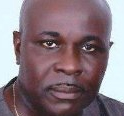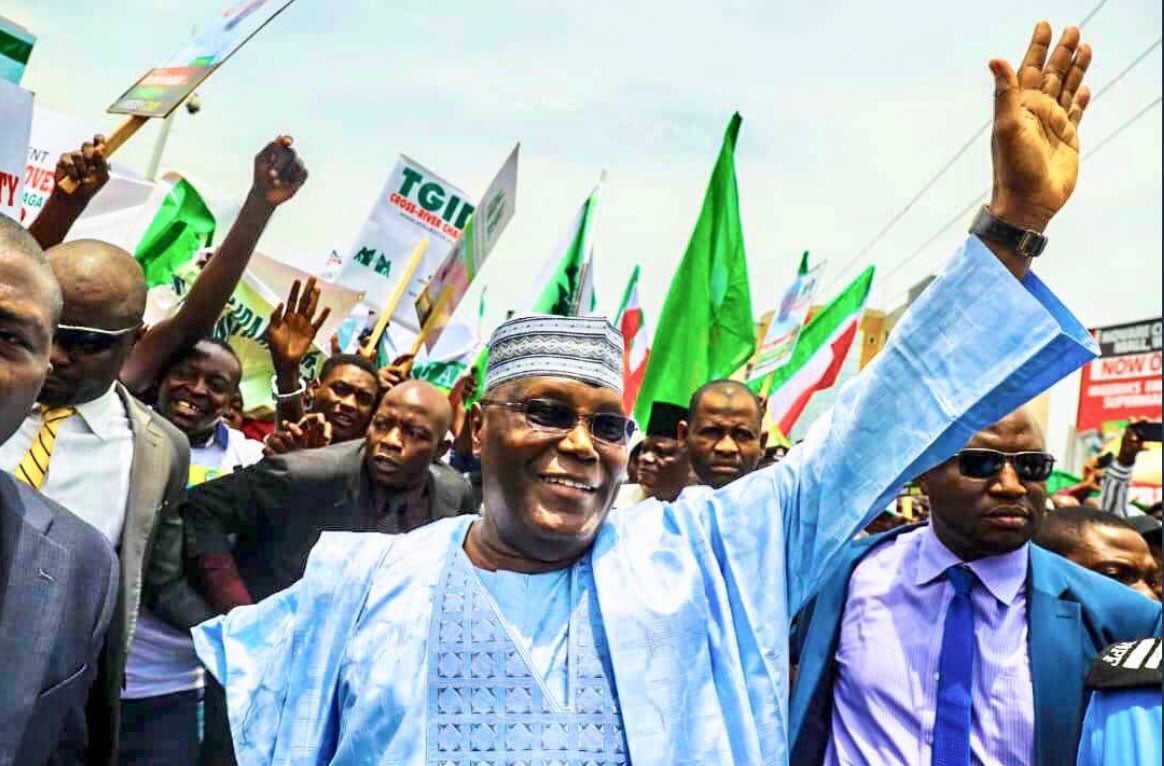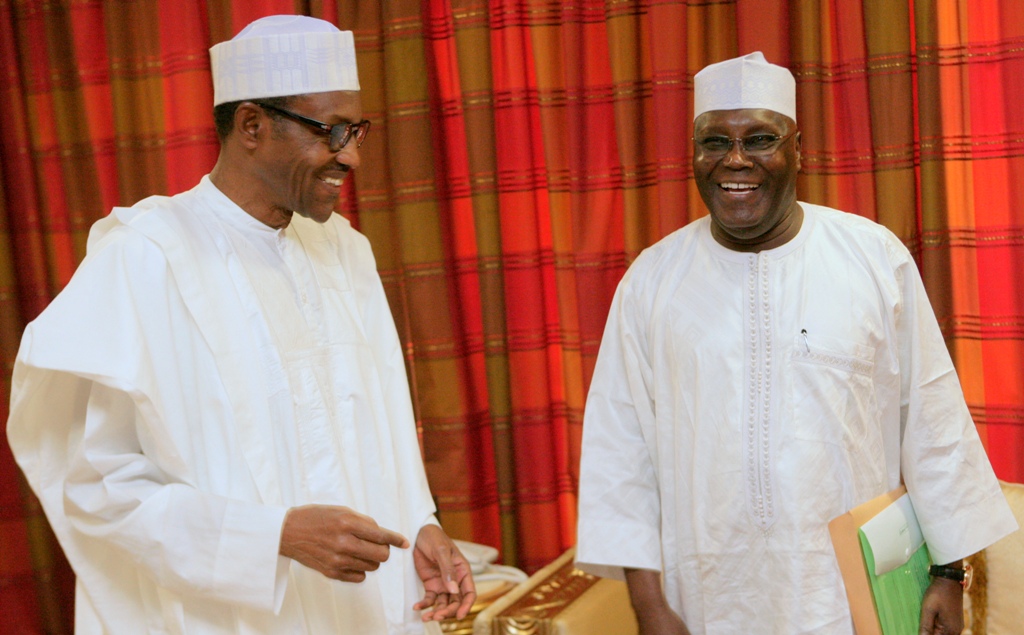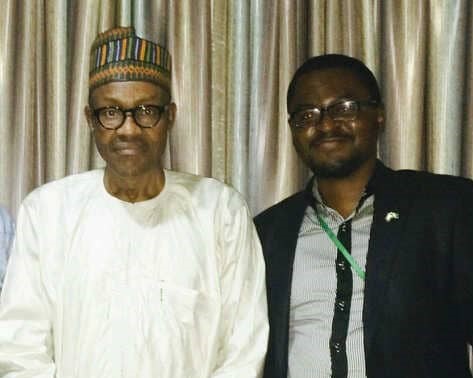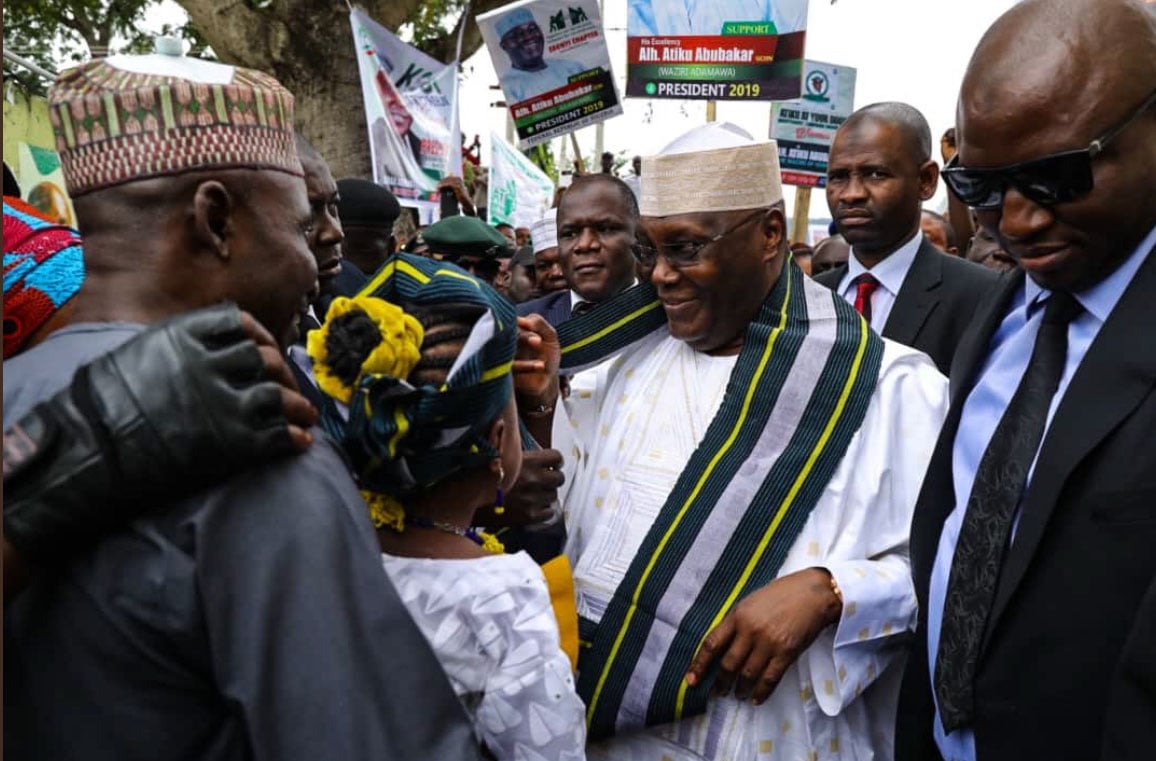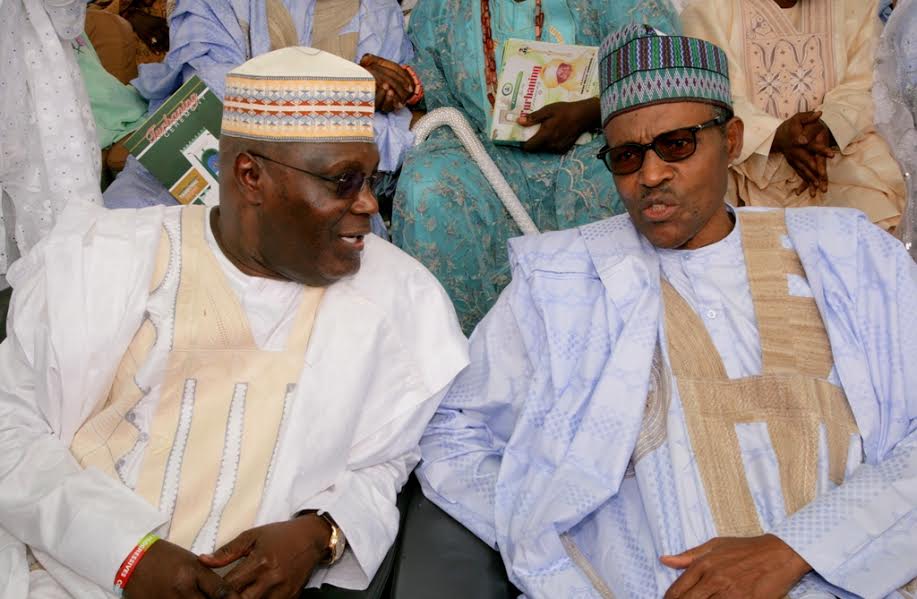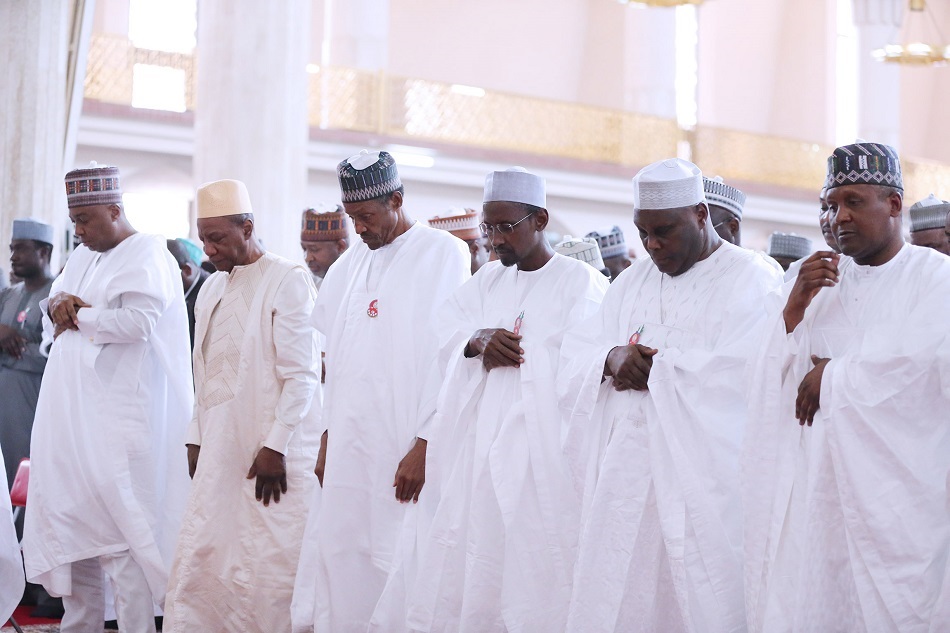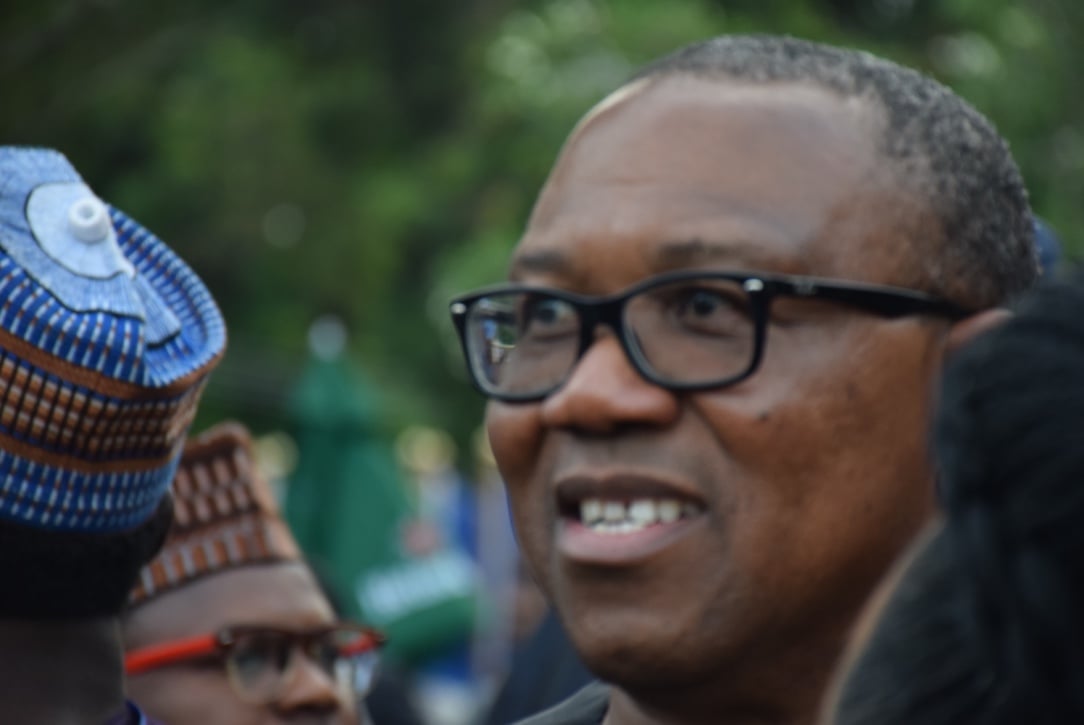Whenever political individuals are used to illustrate the virtues of perseverance and doggedness in this country, the names of Muhammadu Buhari and Alhaji Atiku Abubakar are likely to feature prominently. Buhari was mocked as a perennial contestant – having contested in every presidential election, on different political platforms, since 2003. In fact after losing the 2011 election – both through the ballot box and in the law courts – he vowed that he would keep what he believed was his salvation mission for the country to himself and would not bother to contest again. Somehow in the run-up to the 2015 election, he was ‘persuaded’ to change his mind. He became fourth time lucky.
Alhaji Atiku Abubakar has been aspiring to be the President of the country since 1992 when he contested the presidential primary of the Social Democratic Party (SDP) – one of the two parties decreed into existence by the then military president, Gen. Ibrahim Babangida. He came third in the primary behind the late Chief Moshood Abiola and Babagana Kingibe. However, because Abiola, the winner, had won by only about 400 votes, a run-off was ordered. Atiku stepped down for Abiola and asked his supporters to cast their votes for him, presumably based on an unwritten agreement that Abiola would choose him as his running mate. However when Abiola won the SDP ticket, he announced Alhaji Babagana Kingibe, the runner-up, as his running mate.
At the onset of the Fourth Republic in 1999, Atiku was chosen by Olusegun Obasanjo to be his running mate– after he had contested and won the governorship election in Adamawa State. Atiku has never hidden his ambition of being the country’s president. However unlike Buhari who contested for the presidency a record four times, Atiku had only one opportunity of being a presidential candidate – in 2007, when he contested on the platform of the ACN (then known as AC), a largely regional political party. The 2019 presidential election will be Atiku’s second time of being a presidential candidate, and the first time he would run on the platform of a national party with a realistic chance of winning the election.
What are Atiku’s chances against Buhari? What crucial choices will he make now to increase his chances of victory?
Advertisement
Daily Trust columnist Farook Kperogi has noted that the country’s electoral map is made up of five key constituencies – the Muslim North (which is not necessarily contiguous), the Christian North (again not necessarily contiguous), the South-west (which has the second largest number of registered voters), the south-east and the South-south. Buhari is believed to have cult followership in the Muslim North but viewed with suspicion elsewhere, which means that to defeat him you need a candidate who will cut into his followership in the hugely populated Muslim North and out-compete him elsewhere in the country’s electoral map. It is not going to be easy but not impossible:
One, it can be argued that Buhari has actually not been tested against a fellow Muslim candidate in the North. For instance though Buhari scored 11-12 million votes in the Muslim North against Obasanjo in 2003 and Jonathan in 2011 and 2015, in 2007 when he contested against Umaru Yaradua, a fellow Muslim from Katsina, he won only 52 per cent of the votes to Yaradua’s 48 per cent. In essence, it is difficult to know whether Buhari’s ‘invincibility’ in the Muslim North is because he was pitted against southern Christian candidates or because of his own popularity. Atiku’s presidential candidacy will test this in 2019
Two, individuals with cult followership in their regions – Awolowo, Ojukwu, Buhari etc – tend to be distrusted by other parts of the country. In this sense, Atiku’s appeal in the Christian North and in the South is partly because he lacks that cultic followership in the Muslim North – and of course the fact of his cosmopolitanism (he is here very much like Obasanjo). The question is how can Atiku reap political capital from his acceptance in the Christian North and the South without alienating ordinary people from the Muslim North that he may not be trusted to protect their interests? A good case in point here is Atiku’s stand on ‘restructuring’ – which boosts his acceptance in the Christian North and the South but also increases suspicions of him in the Muslim North that seems opposed to restructuring. It must however be mentioned that like many politicians that lately embraced the mantra of restructuring, Atiku’s notion of restructuring is couched in obfuscation and rhetorical flourishes that seem deliberately crafted to satisfy the opposing sides in the restructuring debate.
Advertisement
Three, another important choice that may influence the character of the campaign and possibly the outcome of the elections is Atiku’s choice of a running mate. The two zones in contention are the south-east and the south-west. Though some argued that the position has been zoned to the south-east, others contend that political realities should goad the PDP into zoning it to the South West, because the zone already has an influential Vice President from the APC and would need at least an equivalent position from the PDP to be able to entice voters from the zone.
Let me mention that Igbo politics has changed dramatically in the last three years. It can be argued that prior to 2015, Igbo politics was largely driven by the philosophy of ‘the goat follows the man with the palm frond’. Prior to 2015, there was in Igboland an almost visceral animus to the politics of being in the opposition. Not anymore. Not in the annals of Igbo political history have we seen a prolonged and persistent Igbo resistance to a government as we have seen under Buhari – of course Buhari was partly responsible for this by the choices and statements he made in the early years of his government. Since Atiku emerged as PDP’s presidential candidate, many Igbos have appropriated him as one of their own – an indication that their opposition to Buhari’s government was not rooted in ethnicity or religion. Would the Igbos feel let down if a man they have quickly and passionately adopted as one of their own decides to choose his running mate from another part of the south? Again it is not going to be an easy choice for Atiku and the PDP.
Four, what type of campaign does Atiku plan to run? Atiku is respected as a policy wonk. He will probably have well- researched policy position on most of the contentious issues – security, employment generation, separatist agitations, education, health etc. If preparation for the job is the sole criterion for winning elections, I doubt if Atiku will have any rival. But then around the world, elections are won more on emotional grounds than on policies – however soberly presented. Electioneering campaigns are more like wars without weapons rather than academic seminars where people discuss concepts in rational and unemotional manner. This means that as much as Atiku’s intellectuals and think-tanks are important, he will also need on the front line the likes of Femi Fani-Kayode, Dr Udenta O Udenta and Dr Doyin Okupe – men who cannot only match the political warriors from the APC’s ‘war room’ intellect-for-intellect, polemics-for-polemics and rascality-for-rascality, but also have the uncanny ability to deploy historiography to service political objectives.
Five, the 2019 election will not be won on Buhari’s assumed non-performance or the deepening hunger in the land, but which of the parties succeeds more in appealing to its bases by raising the fear factor of the other candidate and making strong in-roads into the other’s perceived strongholds. The fear factor will be a big driver of the campaign: already the APC is warning that a vote for Atiku will be a return to the ‘16 years of corruption and waste, which brought us to this mess’. Buhari’s critics on the other warn Nigerians that the country may not survive another four years of APC rule because the ‘country has never been as polarized as it is now, and Nigerians have never had it so bad’. Campaigns are a game of not trying to allow your opponent’s labelling to stick on you.
Advertisement
Six, in addition to the above, another crucial variable that will determine the trajectory of the campaign and the outcome of the election is what the Prussian General Carl von Clausewitz called the ‘fog of war’. There will always be intervening variables that cannot be foretold by any analyst and which can turn out to be the game changer.
Email: [email protected]
Twitter: @JideoforAdibe.
Advertisement
.
Advertisement
Views expressed by contributors are strictly personal and not of TheCable.
Add a comment
